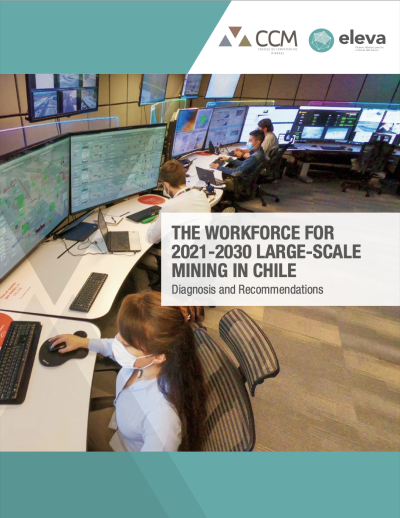
- Report year:2024
- Report author: MINING COUNCIL TEAM Joaquín Villarino H., Chief Executive Officer Carlos Urenda A., Executive Director José Tomás Morel L., Director of Studies Sofía Moreno C., Director of Commissions and International Affairs Verónica Fincheira H., Executive Director of Mining Skills Council Christel Lindhorst F., Director of Communications Karla Lorenzo V., Deputy Director of Regulatory Affairs and Sustainability Josefina Ortiz Z., Communications Project Manager Gloria Sauri M., Administration and Finance Manager FUNDACIÓN CHILE HUMAN DEVELOPMENT TEAM Hernán Araneda D., Human Development Manager Vladimir Glasinovic P., Director of Eleva Program Verónica Cid B., Project – Studies Manager Tomás Niklitschek S., Consultant – Studies Daniela Bascuñán G., Consultant – Studies Camila Silva G., Communications Manager Philip Wood V., Circular HR Manager Patricio Balmaceda V., Circular HR Consultancy
- Organisation: MINING COUNCIL TEAM and FUNDACIÓN CHILE HUMAN DEVELOPMENT TEAM
This study provides important information on the human capital challenges expected for the mobile decade 2021-2030 in the COVID-19 pandemic context. Regardless of this adverse scenario, in 2020 the mining industry accounted for 12.5% of the GDP; that is, 3.4 percentage points higher than the previous year. Despite the slight copper production decrease observed in the last year –which reached 5.73 million tons-, this drop was made up by a copper price increase with an average value of US$2.8 per pound (Mining Figures Updated, Mining Council, 2021). On the other hand, though in 2020 the domestic employment rate was dramatically affected by the pandemic -a nearly 10-percentage point drop vs. 2019-, the mining sector was able to directly or indirectly generate over 710,000 jobs.
